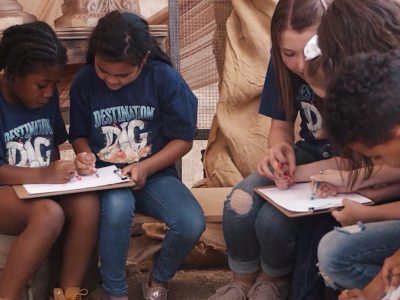Ready, Reset, Go!
Summer is here, and kids ministry leaders everywhere find themselves re-entering into the joys and challenges of conducting busy summer ministries …

Summer is here, and kids ministry leaders everywhere find themselves re-entering into the joys and challenges of conducting busy summer ministries …

By Kayla Stevens The families in our ministries are wonderfully diverse, unique, and different, and we celebrate those differences. Yet, as we serve …

We tend to put a lot of effort into preparing for and running a church Vacation Bible School. But what about following up with the families after VBS? …

Disclaimer: I am neither a licensed counselor nor a psychologist, just an untrained observer of human behavior. However, over the past few …

Chances are you’ve looked at the calendar and you know that summer is coming! Chances also are that you’ve looked around your church and realized that …

What about parents? Should I try to minister directly to parents? Is there value in building relationships with the parents of the kids I serve? Is …

By Sam Luce This past year has been one of the more difficult of our lifetimes. There has been much loss and much difficulty, but there have been some …

2020 was a challenging season for ministry—and 2021 is (so far) proving no less difficult! But that doesn’t mean we can continue to delay or postpone …

Years ago, many churches operated with a Field of Dreams mentality: “If you build it, they will come.” (I was in a church business meeting one time …

By Bekah Stoneking COVID-19 has changed nearly every aspect of our lives. The ways we connect with our church families, pursue education, and even the …

Kids Ministry 101 welcomes guest blogger Aaron Wilson. This article was originally published in Facts & Trends. School may be out for the summer, …

Creating a new and expectant parent ministry is an effective way to reach new families in the community and build relationships with parents. In an …
